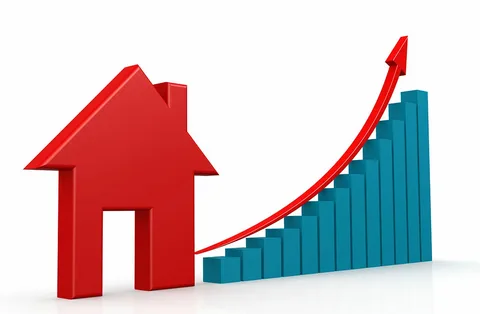Navigating the financial responsibilities of homeownership can be daunting. Effective financial planning is essential to ensure that you can comfortably afford your home and manage any unexpected expenses. A mortgage calculator is a powerful tool that can help you budget accurately and plan for the future. This guide will explore the importance of financial planning for homeowners and how to use a mortgage calculator to create a realistic and sustainable budget.
Understanding Financial Planning for Homeowners
Importance of Financial Planning Financial planning is crucial for homeowners to ensure they can meet their mortgage payments and manage other related costs. It involves setting financial goals, creating a budget, and regularly reviewing your financial situation to make necessary adjustments. Good financial planning can help you avoid financial stress and build a secure future.
Key Components of Financial Planning Effective financial planning includes setting a budget, managing debt, saving for emergencies, and planning for long-term goals such as retirement. For homeowners, it also involves considering the costs of maintenance, property taxes, and insurance. A well-thought-out financial plan can help you manage these costs and achieve your financial goals.
Why Budgeting Matters for Homeowners
Benefits of Effective Budgeting Budgeting helps you track your income and expenses, ensuring that you live within your means. For homeowners, a budget is essential to manage mortgage payments, maintenance costs, and other expenses. Effective budgeting can help you save money, reduce debt, and prepare for future financial needs.
Common Budgeting Mistakes Many homeowners make common budgeting mistakes such as underestimating expenses, failing to account for irregular costs, and not adjusting their budget when circumstances change. Avoiding these mistakes can help you maintain a balanced budget and prevent financial difficulties.
The Role of a Mortgage Calculator in Budgeting
How a Mortgage Calculator Works A mortgage calculator helps you estimate your monthly mortgage payments based on factors such as loan amount, interest rate, and loan term. By inputting this information, you can see how different variables affect your mortgage payment and overall budget.
Key Features of Mortgage Calculators Good mortgage calculators offer features such as amortization schedules, extra payment options, and the ability to factor in taxes and insurance. These features provide a comprehensive view of your mortgage costs and help you make informed financial decisions.
Getting Started with a Mortgage Calculator
Inputting Accurate Financial Information To get accurate results from a mortgage calculator, you need to input precise financial information. This includes your loan amount, interest rate, loan term, down payment, and other relevant details. Accurate inputs ensure that the calculator provides reliable estimates.
Interpreting the Results Once you’ve entered your information, the mortgage calculator will provide an estimate of your monthly mortgage payment. This estimate includes the principal and interest, and can also factor in taxes and insurance if those options are available. Use this information to compare different loan scenarios and determine what fits your budget.
Creating a Budget Using a Mortgage Calculator
Estimating Monthly Mortgage Payments A mortgage calculator helps you estimate your monthly mortgage payments based on different loan scenarios. This includes the principal and interest, as well as additional costs like taxes and insurance. Use these estimates to plan your budget and ensure you can comfortably afford your mortgage payments.
Factoring in Additional Costs Owning a home comes with additional costs beyond the mortgage payment, such as maintenance, repairs, and utilities. Use the mortgage calculator to factor in these expenses and get a comprehensive view of your homeownership costs.
Evaluating Different Mortgage Scenarios
Fixed-Rate vs. Adjustable-Rate Mortgages Mortgage calculators can help you compare fixed-rate and adjustable-rate mortgages (ARMs). Fixed-rate mortgages offer stability with a consistent interest rate and monthly payment, while ARMs typically start with a lower interest rate that can change over time. Use the calculator to see how each option affects your budget.
Impact of Different Loan Terms The length of your mortgage term affects your monthly payments and overall interest costs. Shorter terms typically have higher monthly payments but lower total interest costs, while longer terms have lower payments but higher interest costs. Use the mortgage calculator to explore different loan terms and find the best option for your financial situation.
Managing Down Payments and Interest Rates
Strategies for Saving for a Down Payment A significant down payment can lower your monthly mortgage payments and reduce the amount of interest you pay over the life of the loan. Start saving early and explore different strategies, such as setting up a dedicated savings account or cutting unnecessary expenses, to build your down payment fund.
How Interest Rates Affect Your Budget Interest rates play a crucial role in determining your mortgage payment. Even a small difference in rates can significantly impact your monthly payment and the total cost of your loan. Keep an eye on current market rates and use the mortgage calculator to see how changes in interest rates affect your payment.
Planning for Long-Term Homeownership Costs
Maintenance and Repair Costs Homeownership comes with ongoing maintenance and repair costs. Budgeting for these expenses ensures you’re prepared for unexpected issues and can maintain your home’s value. Regular maintenance can also prevent costly repairs in the future.
Property Taxes and Insurance Property taxes and homeowner’s insurance are additional costs that can significantly impact your budget. Use the mortgage calculator to include these expenses in your overall homeownership costs.
Using a Mortgage Calculator to Plan for the Future
Preparing for Life Changes Life changes such as job changes, family growth, or retirement can affect your financial situation. Use the mortgage calculator to plan for these changes and ensure your budget can accommodate new circumstances.
Building an Emergency Fund An emergency fund is crucial for handling unexpected expenses such as medical bills, car repairs, or job loss. Aim to save three to six months’ worth of living expenses in an easily accessible account. Use the mortgage calculator to see how setting aside money for emergencies affects your budget.
Advanced Features of Mortgage Calculators
Amortization Schedules Amortization schedules show how your payments are applied to principal and interest over time. This feature helps you understand the progression of your loan and the impact of extra payments on reducing your loan balance.
Extra Payment Options Some mortgage calculators allow you to factor in extra payments towards the principal. Making additional payments can shorten your loan term and save you money on interest. Use this feature to explore different payment strategies and their long-term benefits.
Real-Life Budgeting Case Studies
Success Stories of Homeowners Hearing from others who have successfully used mortgage calculators to plan their budgets can provide valuable insights and inspiration. Learn from their experiences, challenges, and strategies to make your own journey smoother.
Lessons Learned from Budgeting Mistakes Real-life case studies can also highlight common pitfalls and mistakes to avoid. Use these lessons to better prepare yourself for the homebuying process and make informed decisions.
Common Pitfalls to Avoid
Overestimating Your Budget It’s important to be realistic about what you can afford. Overestimating your budget can lead to financial strain and difficulty making payments. Use the mortgage calculator to set a budget that fits your income and expenses.
Ignoring Hidden Costs Many first-time homebuyers overlook additional costs like maintenance, repairs, and insurance. These expenses can add up and affect your overall budget. Include them in your calculations to get a complete picture of homeownership costs.
The Impact of Economic Factors on Your Budget
Inflation and Mortgage Rates Inflation affects the purchasing power of money and can influence mortgage rates. Higher inflation often leads to higher rates, while lower inflation can result in lower rates. Stay informed about economic trends to better understand rate fluctuations.
The Role of the Federal Reserve The Federal Reserve’s policies can impact mortgage rates and the overall economy. Understanding how these decisions affect the market can help you anticipate rate changes and time your home purchase accordingly.
Improving Your Financial Health for Better Budgeting
Understanding Your Credit Score Your credit score is a key factor in mortgage approval and the interest rate you receive. A higher score can lead to better loan terms and lower interest rates. Understand how your score is calculated and how to improve it.
Tips for Improving Credit Scores Improving your credit score can take time, but it’s worth the effort for better mortgage terms. Pay down debt, make payments on time, and avoid new credit inquiries to boost your score before applying for a mortgage.
The Benefits of Professional Financial Advice
When to Seek Help from a Financial Advisor Sometimes, professional financial advice can provide valuable insights and help you make informed decisions. If you’re unsure about your budget or financial situation, consider consulting a financial advisor.
How to Choose the Right Advisor Choosing the right financial advisor is important for getting reliable advice. Look for advisors with good reputations, relevant experience, and transparent fee structures. Ask for recommendations and check credentials before making a decision.
FAQs
How accurate are mortgage calculators? Mortgage calculators provide estimates based on the information you input. While they’re generally accurate, actual loan offers may vary based on lender policies and market conditions.
Can a mortgage calculator help with refinancing? Yes, many mortgage calculators include refinancing features that allow you to compare your current loan with new offers, helping you determine potential savings.
What information do I need to use a mortgage calculator? You’ll need details such as your loan amount, interest rate, loan term, and down payment. Additional information, like property taxes and insurance costs, can provide more accurate estimates.
Are there free mortgage calculators available? Yes, there are many free mortgage calculators available online. These tools can help you estimate your mortgage payments and compare different loan scenarios.
How often should I use a mortgage calculator? It’s a good idea to use the calculator regularly, especially when considering new loan offers, changes in interest rates, or planning extra payments.
What if my financial situation changes? If your financial situation changes, update the data in the calculator to ensure the estimates remain accurate and reflect your current circumstances.
Effective financial planning is essential for homeowners to manage their mortgage payments and other related costs. A mortgage calculator is an invaluable tool that can help you create a realistic and sustainable budget. By understanding and utilizing its features, you can make informed financial decisions, plan for the future, and achieve your dream of homeownership with confidence.







